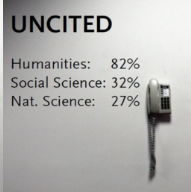At turn of the month 30.11.-1.12.2016 University of Helsinki and Helsinki Centre for Digital Humanities organized a #PHOS16 (Philosophy and History of the Open Science) conference with many researchers from near and far. The program was versatile and it was even streamed to the web and as stated on the page all that will also be available later on.
For a remote participant e.g. on the Day 2 (at about 5:42:00) the Camilla Mørk Røstvik was refreshing, as she didn’t use slides so it was easy to focus to her topic. The stories of scholars of earlier days, who were despaired in the amount of work they did for the peer-reviewing papers seemed immensive, and when put to the current day situation, the situation might have not gone forwards. The ever increasing pace or need to publish articles, is also considerable burden for this work, that is done in the background. The talk credited the review reports, which the Royal Society archive has been storing from all of the articles, regardless if the article was approved or rejected.
Then when compared to the Benedikt Fecher (Berlin): Publishing and the Limits of Openness talk, who talked
about how many articles go uncited, reaching 82% in humanities. But situation is not made better by having only 13% of peer-reviewed articles open.
Tricky situation – being published in top quality articles gives best visibility, while also might it also restrict visibility if that particular journal is not part of the contractually obtained one that certain researcher would need. This is why e.g. FinELib is nowadays negotiating Finnish agreements to get the best from both sides. For example, Ministry of Education supports open science with all means. So, sign the tiedonhinta.fi petition in order to help.
Avointa tiedettä edistettävä kaikin keinoin #avointiede #openscience https://t.co/93HyFNWAT4
— Opetus- ja kulttuuriministeriö (@okmfi) December 8, 2016

